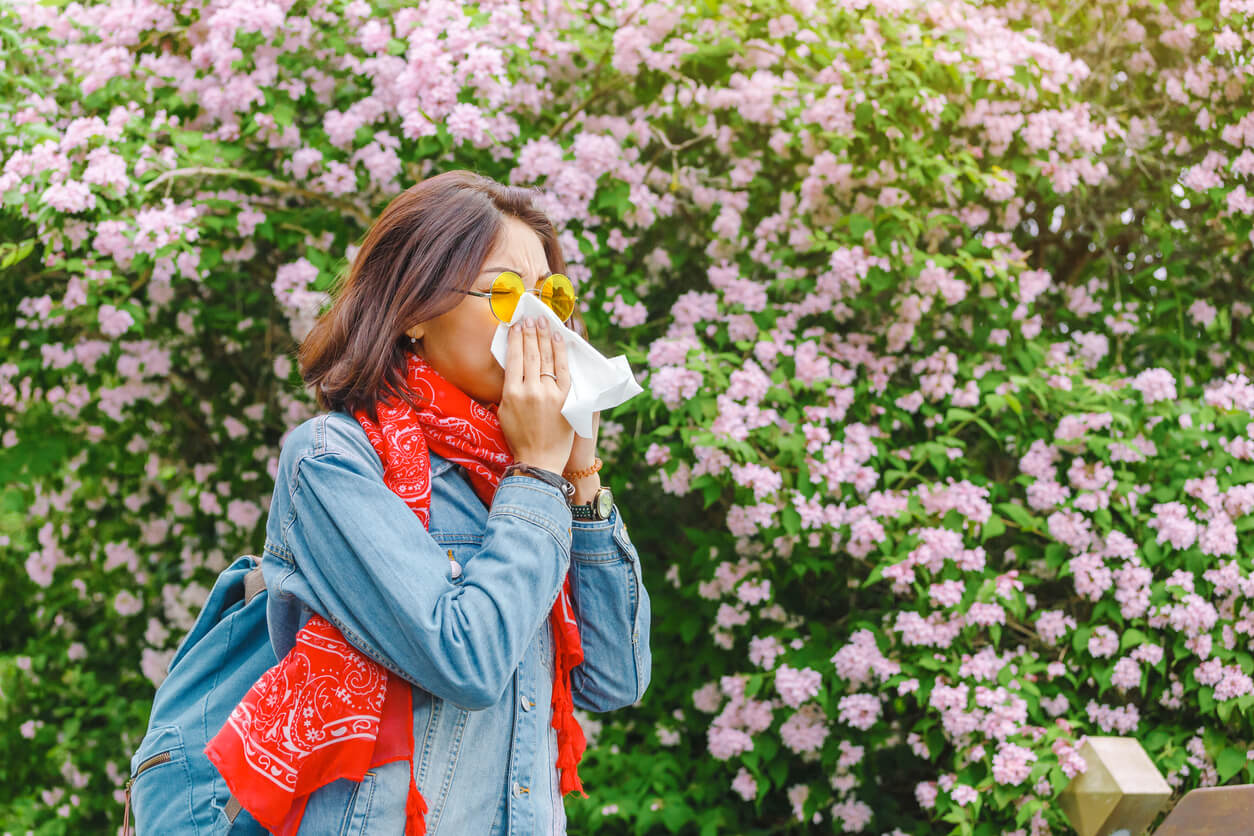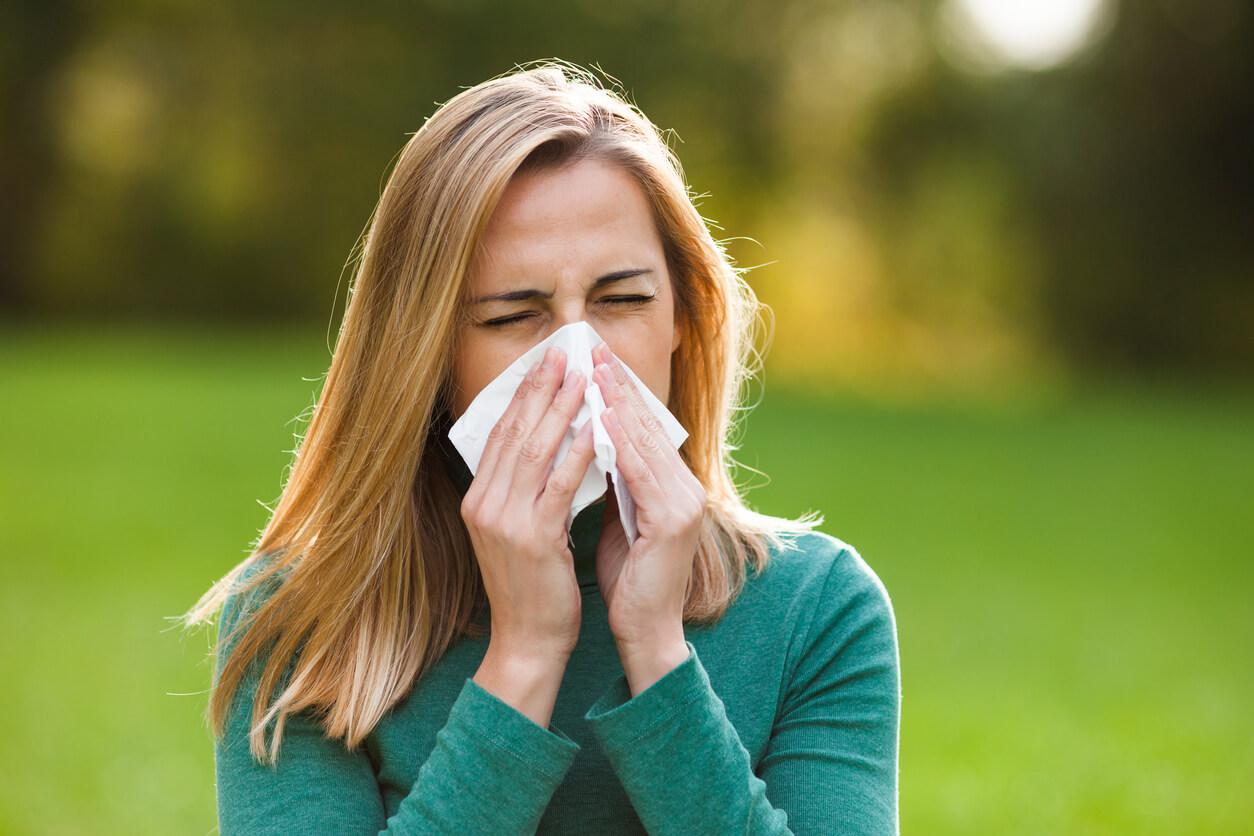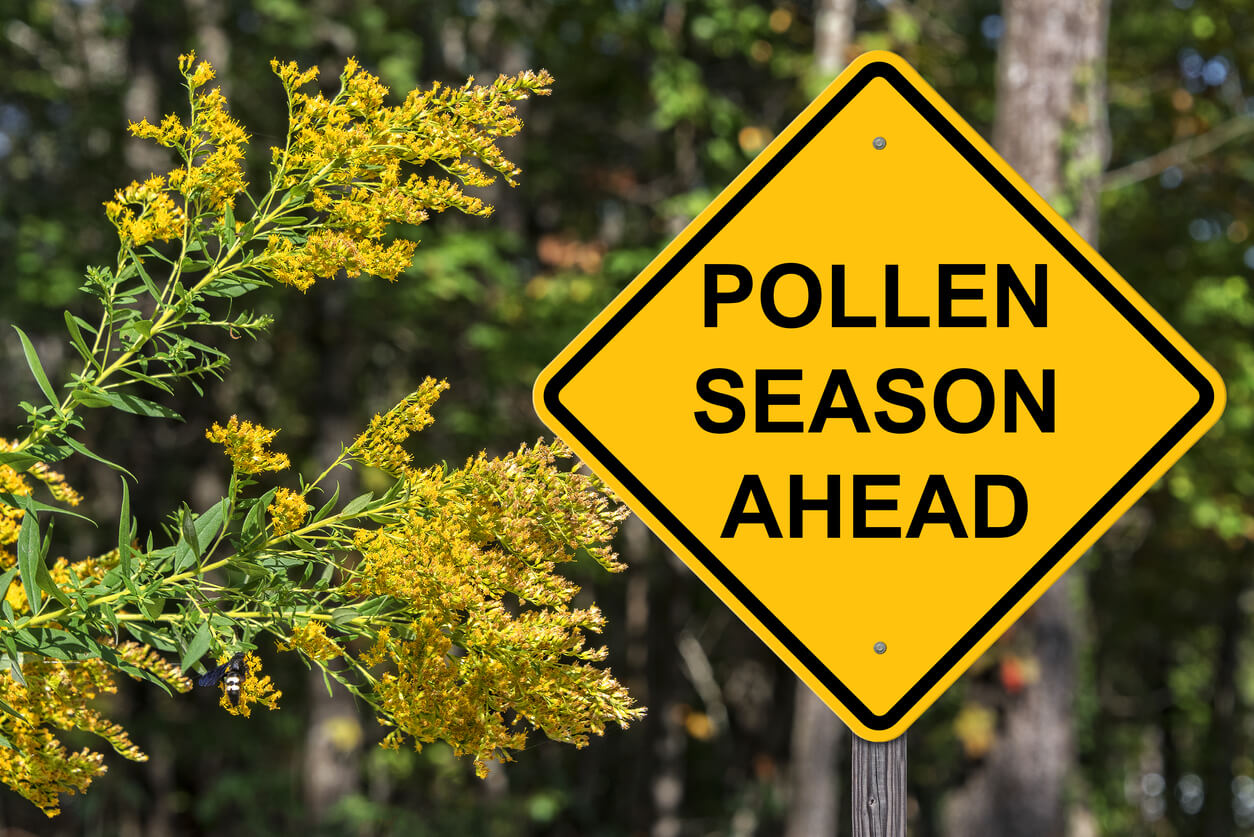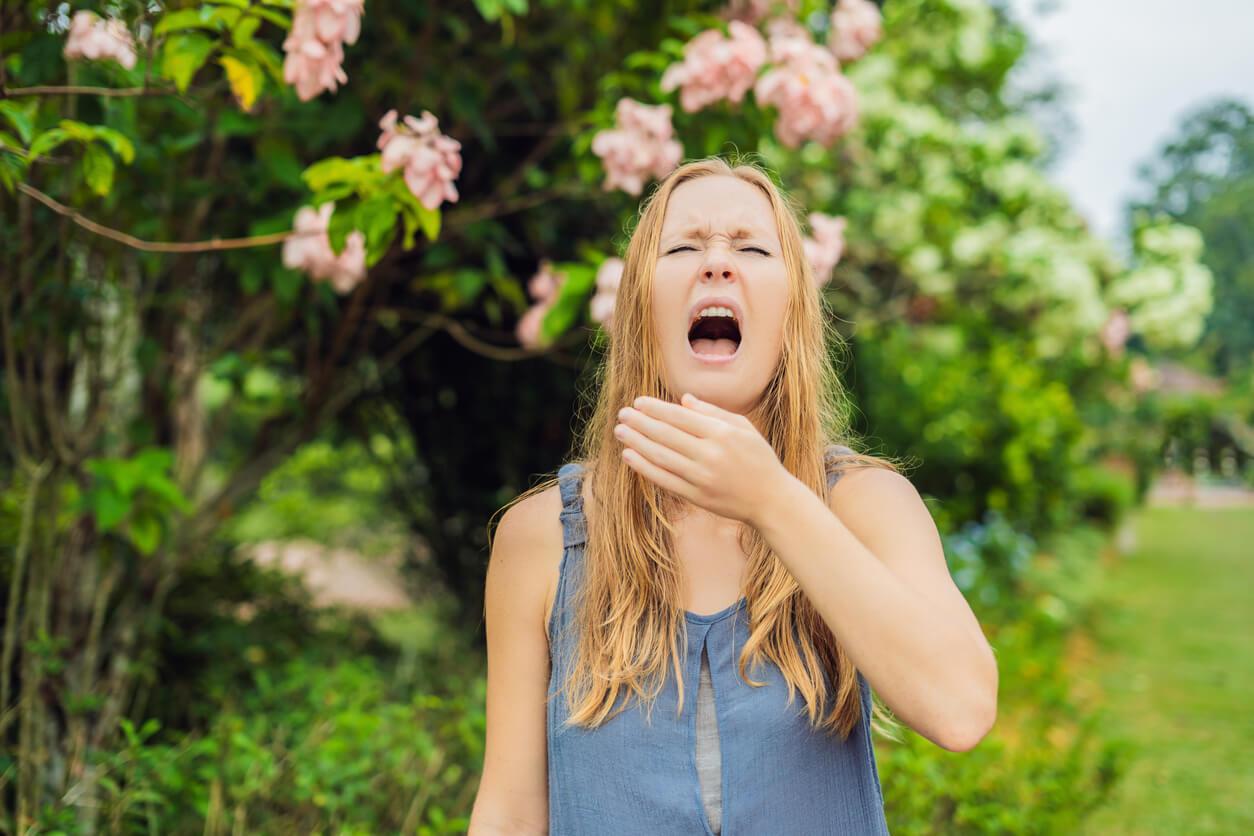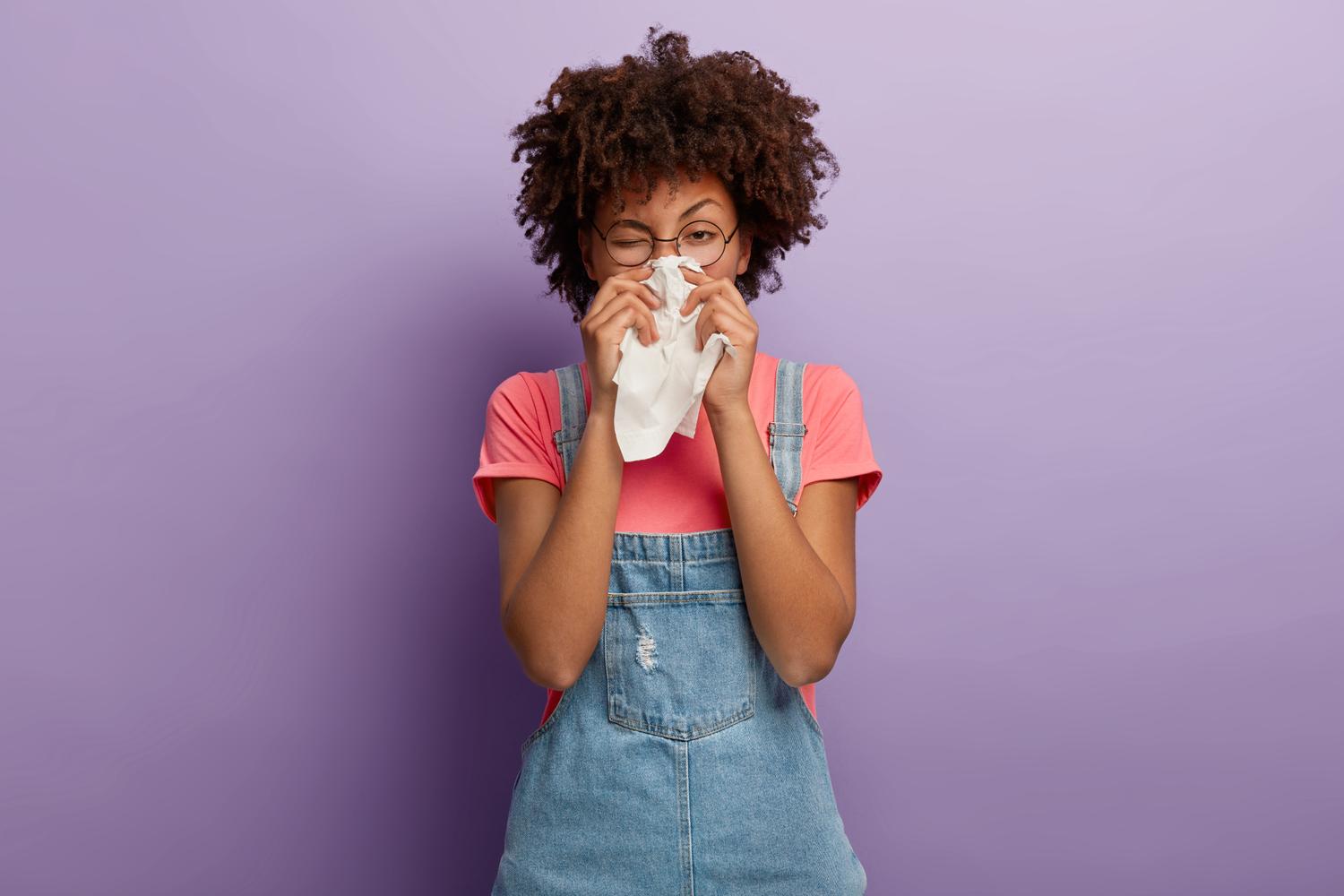9 Self-Care Tips for Allergic Rhinitis
Key Takeaways
- Try to stay away from things that trigger your allergies, like pollen, dust, or pet hair
- Cleaning often, keeping your home's air clean with air filters, and rinsing your nose with saline can help prevent symptoms from occurring or worsening
- If your allergic rhinitis symptoms are still persisting, you may need to consider prescripton medication or immunotherapy
People who struggle with allergic rhinitis and seasonal allergies often experience more than just weather changes during the changing seasons.
Allergic rhinitis is known for its frustrating physical symptoms. These include frequent sneezing, itchy eyes, and even wheezing. These symptoms can make normal life harder during peak allergy season and impact our mental well-being.
Luckily, there are a number of ways to ease your allergic rhinitis symptoms, from limiting your pollen exposure to medication and immunotherapy. Here are some of the most effective ways to help minimize your symptoms:
1. Manage your exposure to allergens
One of the best ways to keep your allergy symptoms at bay is by limiting your exposure to pollen and other triggers. For instance, if you’re allergic to tree pollen, try to keep your windows closed during pollen season. This season usually starts in the spring or when pollen levels are high.
If you see a high pollen count on the forecast, do your best to limit your exposure when possible. This can mean doing any sort of garden-related chores on a different day or asking your friends if you can have an indoor hang-out instead of a picnic at the park. Additionally, consider wearing a medical mask, an FFP-2 mask or an N-95 mask that covers your face and mouth if you need to do any garden-related chores, like mowing the lawn.
2. Use air filters or air purifiers
Air purifiers equipped with high-efficiency particulate air (HEPA) filters are a great way to improve the quality of air inside your home.
Air purifiers and filters can help you tackle indoor pollution by sucking in polluted air and running it through a filtration system that releases clean air back into the room.
3. Keep a tidy home
Regular cleaning can help you reduce allergens like grass pollen, dust mites, and pet dander from your home and keep you healthy.
For instance, cleaning your air conditioner’s filter, dusting surfaces and vacuuming carpets frequently can help reduce the circulation and build-up of allergens in your space. Additionally, using a damp cloth for dusting can help trap allergens instead of dispersing them into the air.
4. Try over-the-counter allergy medication
Over-the-counter (OTC) oral antihistamines, which can be used as allergy medication, can help keep moderate-to-severe allergy symptoms at bay.
Antihistamines stop your immune system from releasing histamine. Histamine is a chemical in your body that causes allergy symptoms when it encounters something foreign, like an allergen. Although histamines are useful in protecting your body and getting rid of allergens, the process causes allergy symptoms.
For example, if you have a pollen allergy and were exposed, your body would release histamines. Those histamines would cause allergy symptoms, like sneezing or a stuffy nose, to help your body get rid of the allergen.
5. Rinse your nasal passages
Having a constantly stuffy or runny nose during allergy season can be very uncomfortable. At-home nasal rinses with saline can help you clear your sinuses and help relieve nasal congestion.
There are many different ways you can go about rinsing your nasal passages. For instance, you can use a Neti Pot, which you can find at your local drugstore or pharmacy. Neti Pots look like small teapots, you can fill them with warm water and saline solution.
Alternatively, you could use a saline nasal spray that gently releases a saline mist into your nasal passages to help alleviate congestion. Nasal rinses and nasal sprays are effective in clearing your sinuses of inhaled allergens and irritants, such as dust and pollen.
6. Take a quercetin supplement
Quercetin is a type of plant pigment that acts as a strong antioxidant. It can be found in many fruits and vegetables like broccoli, onions, grapes, berries and apples. More than just being a powerful antioxidant, quercetin is also known for having anti-allergic properties.
Like over-the-counter medications to treat allergies, quercetin keeps the body from releasing histamines and has anti-inflammatory properties. Querticin can be effective in supporting the treatment of allergic rhinitis (hay fever) and bronchial asthma responses.
While quercetin can be found in certain foods, it is also available as an OTC supplement at most drugstores. As always, a healthcare provider can help you figure out if quercetin is right for you and the best dosage for your symptoms.
7. Try probiotics
Over the past few years, several research studies have discovered that certain probiotics can be effective in managing and treating allergic rhinitis. Probiotics are living microorganisms, such as healthy bacteria and yeast, which can help strengthen your immune system and promote a healthy gut.
Probiotics may also help alleviate allergy symptoms and improve the overall quality of life for individuals struggling with hay fever. The benefits of reducing allergies may vary depending on factors such as dosage and consistency.
8. Add a spoonful of honey to your tea
Honey is one of the most well-known natural remedies. While honey may not stop an allergic reaction in its tracks, it may help soothe an irritated throat and help reduce coughing. Above all, it can be a great and comforting supplement to your existing allergic rhinitis treatment plan and help relieve some of your symptoms.
9. Listen to your body
Last but not least, listen to your body. Allergic rhinitis symptoms can be frustrating and uncomfortable. Your body may need extra rest during times of the year when your allergies flare up. If your allergies affect your quality of life, it may be time to talk to your healthcare provider about a treatment plan.
Advanced treatment options for allergic rhinitis
If the self-care options above aren't offering relief from your allergy symptoms, it might be time to explore more advanced treatments. Options like prescription medications and allergen immunotherapy could offer more effective, long-term relief:
Prescription medication
In some cases, people with moderate-to-severe allergic rhinitis may be prescribed medication to help with symptom management and relief.
Oral corticosteroids can help treat inflammation, asthma, rashes and other allergy symptoms. Cortisone, hydrocortisone, and prednisone are examples of corticosteroid medications.
Additionally, leukotriene modifiers, like Singulair (Montelukast), are a type of medication that can help manage asthma symptoms and allergic rhinitis.
Immunotherapy
Immunotherapy is a long-term treatment plan that can help with allergy relief by changing your body’s immune response to your allergy triggers. It can be a great option for those with moderate-to-severe allergic rhinitis.
There are two main types of immunotherapy: allergy shots or sublingual (oral) immunotherapy. These methods work by gradually exposing your body to the allergen under the supervision of a licensed allergist. Additionally, immunotherapy can prevent allergic rhinitis from escalating and may keep your allergies from turning into asthma.
If you’re curious about immunotherapy, your primary care provider can help you get started and see if it is right for you.
Common allergic rhinitis symptoms
For many, spring, summer and fall are less about admiring new blooms or turning leaves and more about trying to keep their allergy symptoms under control.
Symptoms of allergic rhinitis may include:
- Stuffy or runny nose
- Frequent sneezing
- Itchy eyes, throat or ear canals
- Watery eyes
If you have asthma, there’s a chance you may experience additional symptoms like shortness of breath and wheezing. Additionally, unmanaged allergies could cause asthmatic people to experience moderate-to-severe symptoms. In 2019, the Environmental Protection Agency (EPA) found that between 35,000 and 60,000 asthma-related emergency doctor visits were related to pollen exposure.
When is allergy season?
Allergy season usually begins in early spring, then settles slightly during summer before picking back up in early fall. The season that will affect you most will depend on the environmental allergies that you’re most sensitive to.
One of the most common allergens is pollen, which tends to peak during spring and early summer. Ragweed and mold, which are also some of the most common allergens, tend to peak during fall. Additionally, it’s important to note that not all allergies are seasonal. It’s also possible to have perennial allergies — which are allergies that last year-round.
How Sesame can help
Allergic rhinitis can take a toll on your mood and well-being. Sesame can connect you with licensed healthcare providers who can help diagnose and treat your symptoms. If appropriate, allergists on Sesame can also get you started on an affordable allergy treatment plan.

